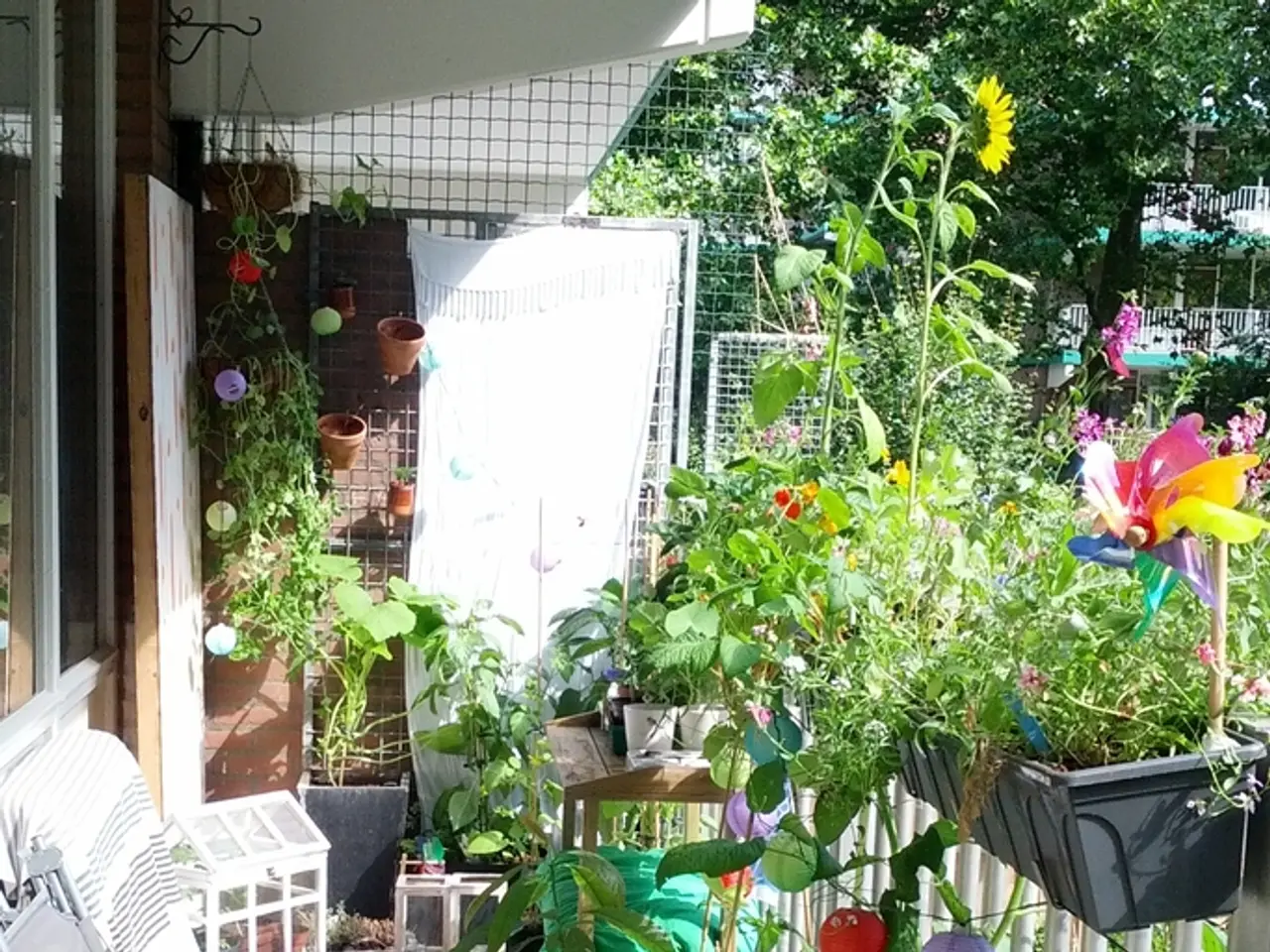Green Living: Eco-Conscious Home Redesign Strategies
In an effort to create a healthier and more energy-efficient living space, opting for eco-friendly home renovations plays a crucial role in reducing our environmental impact and contributing to a more sustainable future. Each small step towards sustainability makes a difference, and collectively, we can create a positive impact on our planet.
By focusing on affordable upgrades, such as water-saving fixtures, sustainable materials, efficient lighting and insulation, maximizing natural light, and smart controls, you can enhance your home's energy efficiency and sustainability without excessive costs.
One of the most straightforward ways to reduce water consumption is by installing water-saving fixtures such as low-flow showerheads, water-efficient faucets, and low-flow toilets. These upgrades not only help reduce water bills but also contribute to water conservation efforts.
Using sustainable materials like bamboo cabinets, reclaimed wood flooring, recycled glass countertops, and low-VOC paints and finishes not only improves indoor air quality but also reduces environmental impact. Bamboo, in particular, is a quickly growing and renewable resource, making it an environmentally friendly alternative.
Upgrading lighting to energy-efficient LED bulbs is another effective measure. These bulbs use about 75% less energy and last significantly longer than incandescent bulbs, providing a long-term solution for energy savings. Adding motion sensors or timers to lighting systems can further help avoid wasted electricity.
Improving insulation is a relatively affordable project, especially during colder months, as it helps better regulate indoor temperatures and decrease heating and cooling costs. Maximizing natural light by installing larger windows or skylights can also reduce dependence on artificial lighting during daytime, enhancing ventilation and mood.
Incorporating smart home technologies such as programmable thermostats and smart lighting controls can optimize energy usage throughout the year, resulting in significant energy savings over time. Refinishing existing fixtures with eco-friendly paints is a budget-friendly way to improve sustainability without full replacement.
For those considering more substantial renovations, such as bathroom or kitchen remodels, radiant floor heating systems are an energy-efficient option, using 25-30% less energy than forced-air systems. However, this can be more of an investment.
Installing energy-efficient windows can help preserve a constant interior temperature, reducing the demand for heating or cooling systems and saving energy usage and expenditures. Implementing effective recycling systems can minimize non-biodegradable waste, while composting systems can reduce organic waste, produce nutrient-rich soil for gardening, and reduce the amount of waste sent to landfills.
Collaborating with an architecture and interior design firm can provide expert guidance on sustainable materials and energy-efficient designs, ensuring that your renovation project is not only eco-friendly but also aesthetically pleasing. At Shell and Core, they offer services such as Interior Architecture, Interior Design, Fit-out Solutions, and comprehensive Architectural & Interior Design services.
Lastly, solar panel installation can lessen dependency on non-renewable energy sources, reduce carbon footprint, and over time, lower electricity costs. It's an investment that pays off in the long run, contributing to a more sustainable future for all.
By embracing these eco-friendly home renovation ideas, we can create a healthier, more energy-efficient living space while reducing our environmental impact and contributing to a more sustainable future. Each small step we take towards sustainability makes a difference, and together, we can create a positive impact on our planet.
- To further enhance your home's energy efficiency and sustainability, consider partnering with a design firm that provides fit-out solutions and comprehensive architectural and interior design services.
- Beyond water-saving fixtures, using sustainable materials like bamboo, reclaimed wood, recycled glass, and low-VOC paints is crucial for improving indoor air quality and reducing environmental impact.
- Opting for energy-efficient interior design choices such as LED bulbs, smart home technologies, and radiant floor heating systems can result in significant energy savings over time.
- Collaborating with a design firm during more substantial renovations, like bathroom or kitchen remodels, can help ensure that your project is not only eco-friendly but also aesthetically pleasing.
- Adopting sustainable practices in our homes, such as solar panel installation and effective recycling and composting systems, can significantly lower our carbon footprint and contribute to a more sustainable lifestyle.




